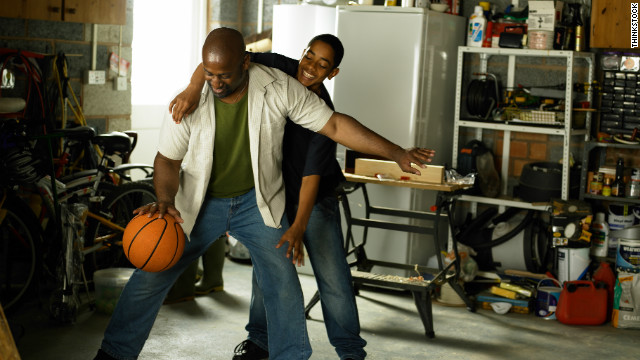The review showed that dads' attitudes toward teen sexual behavior were linked to the age at which teens first had sex. Teens whose dads approved of adolescent sexual activity tended to start having sex earlier than teens whose dads did not approve, according to studies in the review.
In addition, teens who were close with their fathers tended to start having sex later, the studies showed.
The findings "suggest that fathers may distinctly influence the sexual behavior of their adolescent children," said study researcher Vincent Guilamo-Ramos, a professor of social work at New York University. "Fathers may parent in ways that differ from mothers, and therefore represent an additional opportunity to support adolescent health and well-being," he said.
A better understanding of the role dads play in their teens' sexual behaviors and reproductive health could help researchers identify which parenting practices have the biggest impact on teens, and lead to better invention strategies that include both moms and dads, the researchers said.
Teens and risky sex
A 2011 national survey conducted by the Centers for Disease Control and Prevention showed that 47 percent of high school students had ever had sexual intercourse, and 40 percent of those who were currently sexually active did not use a condom when they last had sex.
Adolescence is generally a time of increased risk-taking, and with sexual activity, such risk-taking can be bad for teens' health, Guilamo-Ramos said. It can lead to sexually transmitted infections and unwanted pregnancy.
Previous studies have linked positive parent-teen relationships with teens' sexual behaviors. For example, researchers have shown that parents who monitor and discipline their teens and communicate with them reduce the risk of their teens being involved in sexually risky behaviors.
However, most studies have focused on the influence of mothers on teens' behaviors.
In the new review, Guilamo-Ramos and colleagues looked at 13 studies of thepaternal influence on the behavior of teensbetween ages 11 and 18. The researchers defined "fathers" broadly — they included biological fathers, stepfathers and adoptive fathers, and other men such as uncles or grandfathers who participated as primary male caregivers in teens' lives.
In considering the effect of a dad's general levels of strictness, a few studies showed that teens of both overly restrictive and overly lenient fathers started having sex earlier than teens of moderately strict fathers.
"Fathers who are moderately strict are those that have clear rules, and agreed-upon rational consequences that have been discussed with their teen children," Guilamo-Ramos said. Teens should understand their fathers' expectations, and know the consequences of not following the rules. But fathers should also discuss with their teens the decisions teens can manage on their own and the areas fathers want input from their teens in making a rule or decision, he said.
Encouraging appropriate levels of teen autonomy and being consistent are important actions for fathers, he said.
The researchers also looked at whether fathers might influence the frequency of teen sex, or a teen's number of sex partners, but found no strong influence of paternal relationships or attitudes, they said. Guilamo-Ramos noted that few of the reviewed studies examined these behaviors, and said more research is needed.
Moms and dads
"Evidence increasingly suggests that mothers and fathers independently shape areas of child development, such as academic success and peer relationships," the researchers wrote in their study, published Monday (Oct. 15) in the journal Pediatrics.
Family-based interventions into teens' sexual behaviors often overlook the role fathers have in helping shape teens' sexual decisions, according to the study.
Much effort has gone into parsing the aspects of mother-teen relationships that prevent teens from engaging in sexually risky behaviors, the researchers said.
"The lack of focus on fathers represents a critical missed opportunity to improve the sexual and reproductive health of teens," Guilamo-Ramos said.
Source: The Huffington Post

No comments:
Post a Comment